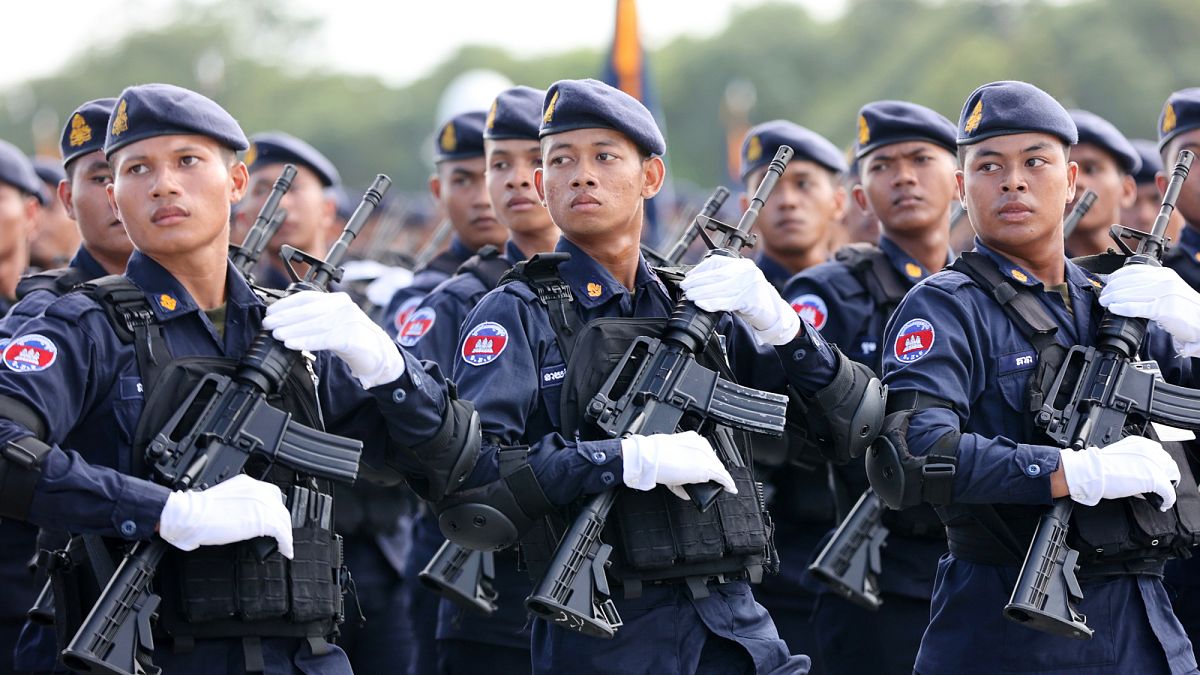

Recent developments highlight a spate of geopolitical tensions and conflicts across several regions, each marked by unique challenges and complexities. From Cambodia’s conscription plans to the ongoing unrest in Syria and Sudan, these events unfold against a backdrop of international concern and diplomatic responses.
Cambodia has announced its intention to initiate mandatory military conscription beginning in 2026, a decision stemming from longstanding border tensions with Thailand. While the conscription law has been in place since 2006, it has remained dormant until now. Under the new provisions, Cambodian men and women aged 18 to 30 are called to serve, although women’s service will be on a voluntary basis. The reactivation of conscription signals an effort to bolster national defense amidst regional uncertainties.
In a distinct narrative of conflict, southern Syria is witnessing deadly clashes involving government forces, Druze militias, and Bedouin tribes. The unrest has led to significant loss of life, with at least 30 individuals reported killed. The tensions began with kidnappings between members of the Druze religious minority and Sunni Bedouin clans, escalating into broader confrontations. The Syrian government has deployed troops to stabilize the region, yet Israeli military intervention has added another layer of complexity. Israel’s army has targeted military tanks in response to perceived threats in the area, intensifying the regional security situation.
Turning to Sudan, the North Kordofan state has become a hotspot for violence as the paramilitary Rapid Support Forces (RSF) are accused of conducting deadly raids on villages. Nearly 300 people have reportedly perished in these attacks, with human rights groups highlighting the indiscriminate nature of the violence, which targets civilians devoid of military connections. These events occur amid a broader civil conflict raging since April 2023, pitting the RSF against the Sudanese army across various frontlines.
In the realm of Israeli-Palestinian relations, a contentious debate has emerged over the proposed establishment of a so-called “humanitarian city” for Palestinians in Gaza. This project has sparked divisions within the Israeli government and military circles. Critics, including former Prime Minister Ehud Olmert, have voiced strong opposition, equating the plan to ethnic cleansing. The intended site for the camp lies within the ruins of Rafah city, overshadowing ceasefire discussions with Hamas and raising ethical and humanitarian concerns.
The simmering conflict in Gaza is further exacerbated by ongoing Israeli military operations. Recent reports from Gaza’s health ministry reveal a harrowing death toll exceeding 58,000, with a significant proportion of the casualties being women and children. This escalation highlights the humanitarian crisis, demanding urgent international attention and intervention to secure peace and stability in the region.
Together, these developments reflect a complex tapestry of international tensions, each demanding mindful consideration and a concerted effort towards conflict resolution. As the global community watches, the need for dialogue, understanding, and peaceful negotiation remains more critical than ever. In such times, the pursuit of peace stands as a beacon of hope amidst tumultuous seas of uncertainty.
Source: {link}
